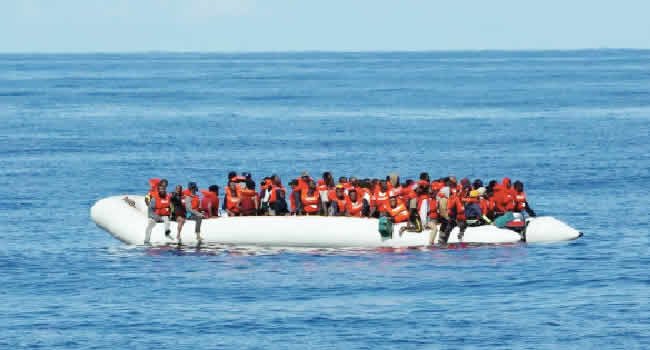Forty-seven migrants are feared to have died off the coast of Mauritania after a boat was found drifting with seven survivors on board, an official with the UN's migration agency said on Tuesday.
The boat "most probably" left the Laayoune region of Western Sahara on August 3, heading for the Spanish archipelago of the Canaries, Nicolas Hochart of the International Office for Migration (IOM) told AFP.
But it suffered an engine failure and drifted for nearly two weeks before being spotted by Mauritanian coastguards on Monday off Nouadhibou, he said.
Fifty-four people, including two children aged under three and a teenage girl, were aboard at the start of the trip, he said, quoting testimony from survivors.
The original group included Malians, Senegalese, Ivorians, Mauritians and Guineans, according to the IOM.
Six men and one woman remained alive on board, according to the coastguard. They were taken into care by the Red Cross and four were then hospitalised in critical condition.
"The others are all dead, of hunger and thirst, after having used up all their provisions," one coastguard member said. The dead were said to have been thrown into the sea by survivors.
The IOM's Hochart said that the journey the boat was making normally takes several days "If everything goes well."
But "when the engine failed, they had no backup supplies" of food and water, he said.
The migration route from the north-western African coast to the Canaries, a gateway to the European Union, has suffered a string of tragedies in recent years.
At its shortest, the crossing is around 100km, but it is a notoriously dangerous route because of strong currents. Vessels are also typically overcrowded and in poor condition.
A total of 376 deaths have been recorded along this route since the start of the year. The true number is probably significantly higher given the difficulty in logging all the boats and all the people aboard each one.
In April, 17 people were found dead on a boat drifting off the Canary Island of El Hierro. Three survivors were winched to safety by a Spanish military helicopter.
In 2020, 1,851 people died on the route, according to the Caminando Fronteras organisation which monitors migrant flows.
Rights groups have said that the Covid-19 crisis may have contributed to the migratory surge by hitting tourism, fishing and other areas of casual labour.




-20260226080139.webp)



-20260223082704.webp)










-20260225072312.webp)










-20260219054530.webp)
-20260224075258.webp)





-20260221022827.webp)